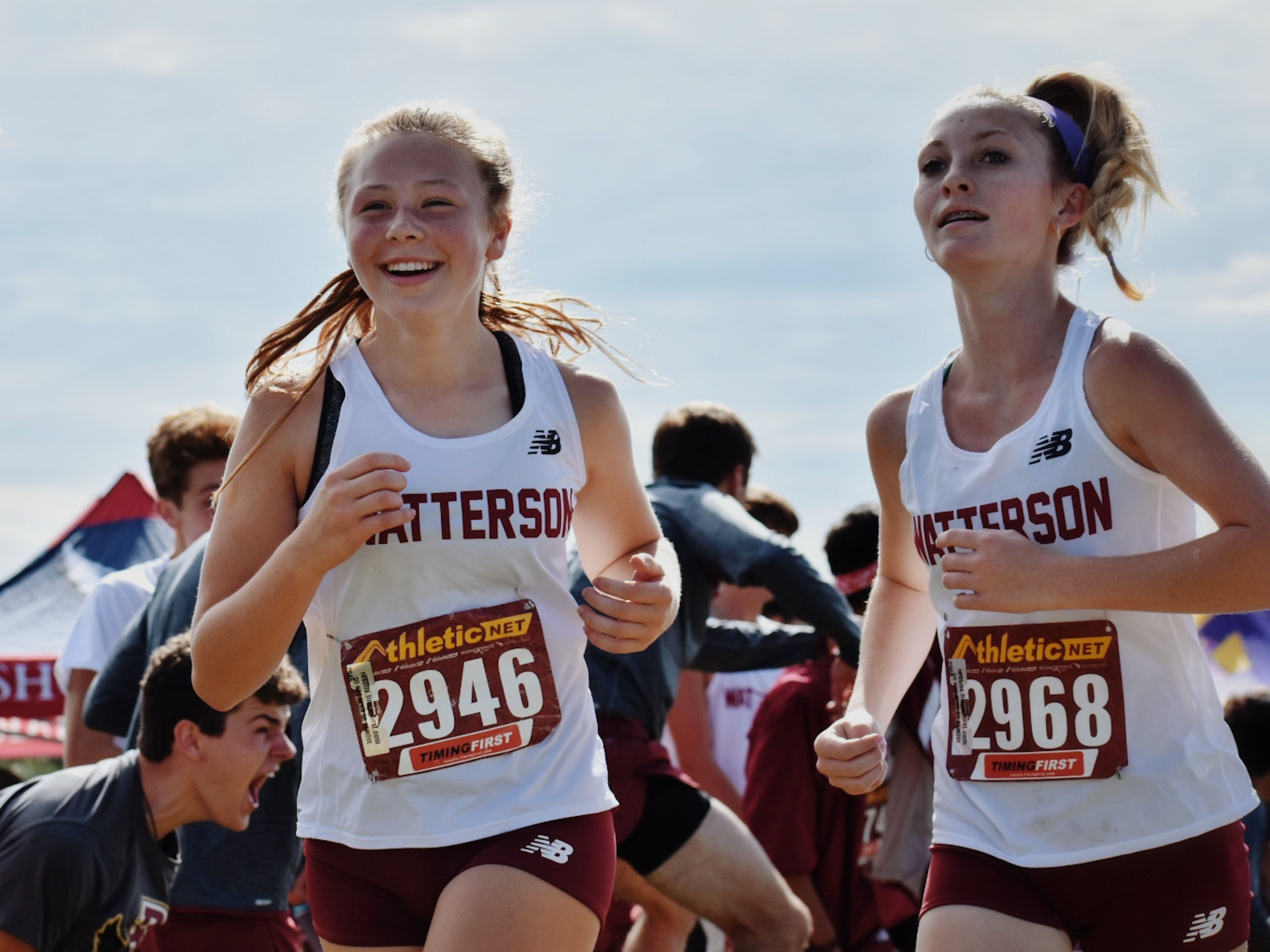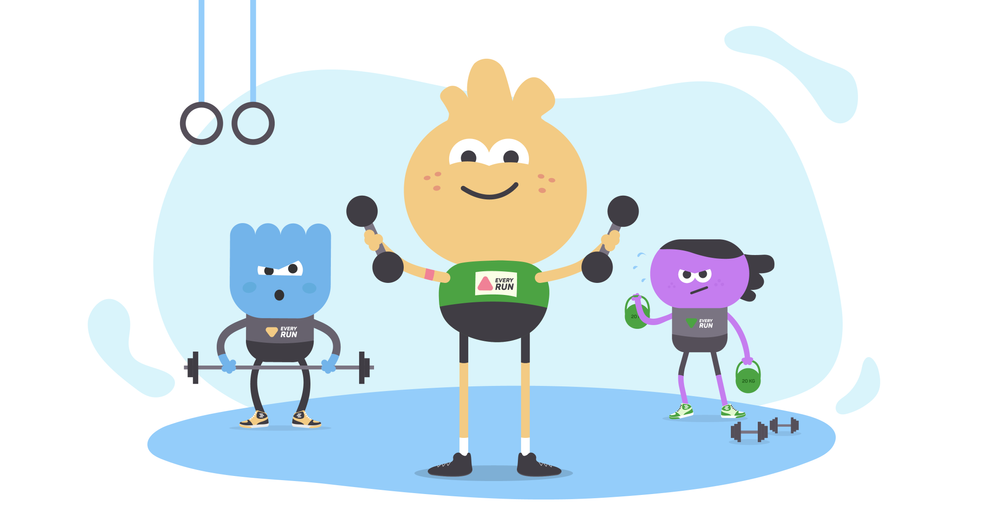Taking the First Step: A Guide for Beginner Runners

Ian Bearder
Jul 19,2023 | Guides

Do you ever find yourself in awe of runners as they glide past you on a quiet morning, or power through a city marathon? Their breath rhythmic, cheeks glowing, seemingly able to conquer mile after mile with an almost otherworldly grace. It's enough to make anyone wish they could lace up their trainers and get started. But where do you start? Right here, with our comprehensive guide for beginner runners.
Choosing the Right Running Gear
One of the beautiful things about running is its simplicity - all you really need is a pair of trainers and you're good to go. However, it's essential that your trainers are comfortable and provide adequate support for your feet. Meet Jane, a nurse from Birmingham, who started running during the first lockdown in 2020. She'd always worn her old gym trainers, but soon started to feel a niggling pain in her knees. After getting a gait analysis at a local running shop, she found a pair of running shoes suited to her foot strike pattern. The knee pain? Gone.
Establishing a Running Schedule
Consistency is key when it comes to running. Richard, a dad of three from Bristol, started running by incorporating it into his daily routine. He chose to run three mornings a week - Mondays, Wednesdays, and Fridays - before his kids woke up. After a few weeks, it became a part of his schedule, just like brushing his teeth or making breakfast. Remember, it doesn't matter how far or fast you go, the important thing is to just get out there regularly.
Overcoming Initial Challenges
Running can feel hard, especially in the beginning. But that doesn't mean you're not cut out for it - it's a normal part of the process. Take Sarah, a teacher from Newcastle. She felt breathless after just a few minutes of running. But instead of giving up, Sarah opted for a run/walk programme, alternating between periods of running and walking. This allowed her to build her endurance gradually, and before long, she was able to run continuously. Sarah says, "I learnt that it's okay to start small, progress is progress no matter how slow."
Setting Achievable Goals
Setting a goal gives you a target to aim for, something to motivate you when the going gets tough. It might be to run continuously for 20 minutes, complete a 5K, or just feel fitter. But remember, goals should be achievable and realistic. Mark, a chef from London, decided to aim for a 5K park run within three months of starting to run. He followed a couch-to-5K plan and found the structured progression kept him motivated and helped him reach his goal.
Importance of Warm Up and Cool Down Exercises
Warming up before a run prepares your body for the activity, reducing the chance of injury. Similarly, cooling down helps your body to recover post-run. Emma, a physiotherapist from Manchester, recommends dynamic stretches like leg swings and lunges as part of the warm-up, and static stretches like quad and hamstring stretches as part of the cool down.
In conclusion, starting your running journey might seem daunting, but by taking these steps, you'll set yourself up for success. It's about you and the road, the rhythm of your breath, the steady beat of your heart. So lace up your trainers and remember: every runner was once a beginner taking their first step.
When you're ready to get started, we hope you'll find a great event or running group here on Everyrun, but here are a few other online resources that can be particularly helpful for new runners:
- NHS Couch to 5K offers a nine-week running plan designed for absolute beginners. The programme gradually helps you build your stamina until you can run 5K without stopping. It's available as a free podcast or an app, which can be accessed here.
- Strava is a mobile app and website that not only tracks your runs via GPS, but also helps you to analyse your performance and progress. It also has a social component where you can connect with other runners, join running groups, and participate in challenges. Check it out here.
- The online version of Runner's World UK is a treasure trove of running tips, training plans, gear reviews, and advice on injury prevention. Visit their website here.
- MapMyRun is another running app that lets you plan routes in advance, track your performance, and analyse your progress over time. It also includes features for tracking nutrition and connecting with other runners. Discover more here.
- Nike Run Club offers guided runs with Nike coaches and athletes, personalised coaching plans for your goals, and comprehensive tracking of your runs. Access the app here.
- Although not specifically for running, MyFitnessPal can help new runners monitor their nutrition, log workouts, and calculate calorie needs based on activity levels. It can sync with other apps like Strava, making it easier to manage all your health and fitness data in one place. Find out more here.
- Goodr Podcast – Run, Selfie, Repeat is a podcast by Kelly Roberts, where she explores the highs and lows of running, fights to stay positive, and laughs at the absurdity of it all. It's a great listen for new runners. Listen to it here.
- While not a virtual resource, Parkrun UK is a community-based, free 5K run that takes place every Saturday morning around the world. You can use their website to find your local Parkrun event. It's a fantastic way to meet fellow runners and build community, no matter your running level. Find your local Parkrun event here.
Remember, while these resources are incredibly useful, always listen to your body and progress at your own pace. Running is a personal journey, and what works for one person may not work for another. Use these tools as guides, but always do what feels right for you. Happy running!
More from Everyrun

Exciting News: Everyrun is listed as one of the best startups in Tallinn, Estonia 🎉 🎉
Everyrun has been shortlisted as one of the best startups in Tallinn, Estonia
Read more
How to balance your immune system in winter
Here are some simple tips that can help you avoid getting sick and maximize your chances
Read more
Move to Improve: Physical Activity Found 1.5 Times More Effective than Drugs in Treating Depression
physical activity is 1.5 times more effective than psychotherapy or leading drugs in treating
Read more